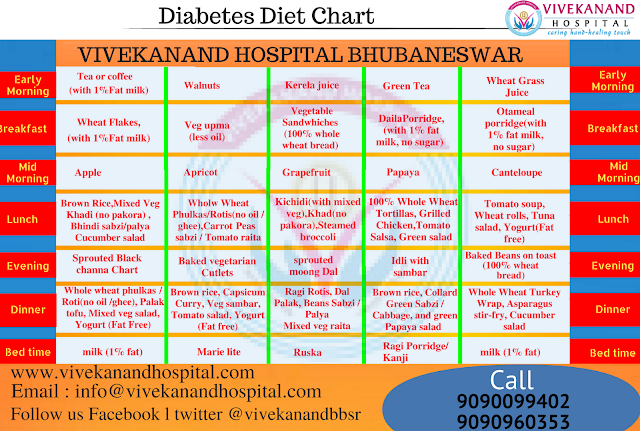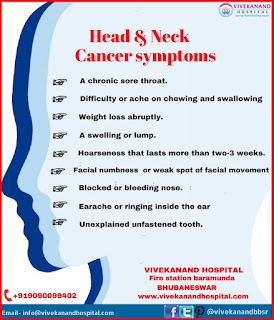Diabetes can strike anyone, from any walk of life. And it does. You’re living day to day with the disease, you might not know - what exactly is diabetes?
Diabetes can affect anyone at any age at any time. Diabetes is usually a lifelong (Chronic) disease in which there are high levels of sugar in blood taken from the foods we eat. Insulin is needed to help the body use the sugar for energy. When a person has diabetes, the pancreas either does not produce or produces very little insulin (type 1 diabetes) or cannot use the insulin that is produced (type 2 diabetes).
Complication
Once diagnosed with diabetes, a lot of complications develop if the treatment is not followed well. The treatment does not just include medicines but also a lifestyle change that needs to be initiated by an individual. Sometimes, the long-term damage caused by diabetes becomes irreversible, so a continuous check to study the severity and cause of few symptoms is recommended
Effect of Diabetes on Heart: Diabetic Cardiomyopathy
Too much glucose in your system can cause restricted blood flow, also known as Atherosclerosis, the “hardening of the arteries”, leading to a variety of symptoms The risk is greater for people with diabetes, who often have increased cholesterol and blood pressure levels Atherosclerosis also increases your probability of getting a stroke
Too much glucose in your system can cause restricted blood flow, also known as Atherosclerosis, the “hardening of the arteries”, leading to a variety of symptoms The risk is greater for people with diabetes, who often have increased cholesterol and blood pressure levels Atherosclerosis also increases your probability of getting a stroke
Effect of Diabetes on Eyes: Diabetic Retinopathy
The most common complication is Diabetic Retinopathy. Retinopathy is caused by the swelling and leaking of blood vessels in the back of the eye (the retina). High blood pressure is also a contributing factor for diabetic retinopathy.
The most common complication is Diabetic Retinopathy. Retinopathy is caused by the swelling and leaking of blood vessels in the back of the eye (the retina). High blood pressure is also a contributing factor for diabetic retinopathy.
Effect of Diabetes on Kidneys: Diabetic Nephropathy
Kidneys are another organ that is at particular risk of damage as a result of diabetes and the risk is again increased by poorly controlled diabetes leading to diabetic kidney disease. The first sign shown is frequent urination with albumin in it. High levels in the urine may mean that your kidneys have suffered some damage and aren’t functioning well. Kidney disease is painless and does not cause symptoms until it is advanced.
Kidneys are another organ that is at particular risk of damage as a result of diabetes and the risk is again increased by poorly controlled diabetes leading to diabetic kidney disease. The first sign shown is frequent urination with albumin in it. High levels in the urine may mean that your kidneys have suffered some damage and aren’t functioning well. Kidney disease is painless and does not cause symptoms until it is advanced.
Effect of Diabetes on Nerves: Diabetic Neuropathy
Nerve damage (neuropathy) is usually caused by high blood glucose level. Damage can occur to the sensory (feeling) and motor (movement) nerves of the legs and feet, arms, hands, chest, and stomach, and to the nerves that control the actions of body organs
Nerve damage (neuropathy) is usually caused by high blood glucose level. Damage can occur to the sensory (feeling) and motor (movement) nerves of the legs and feet, arms, hands, chest, and stomach, and to the nerves that control the actions of body organs
Effect of Diabetes on Skin: Diabetic Dermopathy
People with diabetes sometimes may experience very dry skin because of the damage to the small blood vessels and nerves. The most common problem for people with diabetes is very dry skin on the feet and cracked heels, but this may be more generalized. There are also other skin conditions related to diabetes. High blood glucose levels over time affect the health of the skin
Effect of Diabetes on Foot: Diabetic ulcer
Diabetics are at higher risk of feet damage when the blood supply in both large and small blood vessels is reduced. Apart from nerve damage, structural abnormalities can also occur, for example, clawed toes. Reduced blood supply and nerve function also delays healing, increases the risk of infection, reduces sensation in the feet, and leads to ulcers and structural foot problems
Diabetes and Oral Health
People with poorly managed diabetes are at an increased risk of tooth decay and gum infections. This is due to the damage to the small blood vessels supplying blood to the gums and teeth. Dental and gum infections can also lead to high blood glucose levels. Not looking after your teeth and gums can cause the gums to become inflamed and loosen around the teeth
Diabetes Gangrene
Gangrene is a state in which a certain part of the body is not getting sufficient blood circulation, causing the tissue to die. The common signs of gangrene include Redness in the affected area, which can then become brown or black and Pain evolving into numbness. Swelling from the body fighting off an infection can cause a loss of blood circulation that can starve a section of the body of oxygen and nutrients and cause gangrene.
Symptoms and Tests
Signs and symptoms of diabetes help to detect the disease early and get it under control before any irreversible damage is done to the body.
High blood sugar levels can cause several symptoms, including:
Blurry vision
Excess thirst
Fatigue
Hunger
Urinating often
Weight Loss
A urine analysis may show high blood sugar. However, a urine test alone does not diagnose diabetes. If you have diabetes then your blood sugar level will be higher than 200 mg/dL. To confirm the diagnosis, one or more of the following tests must be done.
Blood Test:
Testing Blood glucose level- diabetes is diagnosed if it is higher than 126 mg/dL twice. Levels between 100 and 126 mg/dL are called impaired fasting glucose or pre-diabetes. These levels are risk factors for type 2 diabetes.
Hemoglobin A1c test –
Normal: less than 5.7%
Pre-diabetes: 5.7% - 6.4%
Diabetes: 6.5% or higher
Oral glucose tolerance test-Diabetes is diagnosed if glucose level is higher than 200 mg/dL after 2 hours of drinking a glucose drink.
Screening for type 2 diabetes in people who have no symptoms is recommended for
Overweight children who have other risk factors for diabetes, starting at the age 10 and repeated every 2 years.
Over adults (BMI greater than 25) who have other risk factors
Adults over age 45, repeated every 3 years
Prevention :
Implementing physical activity into your daily routine can help prevent or delay type 2 diabetes among adults at high risk of developing diabetes.
People with diabetes should learn to count carbohydrates in their food as carbohydrates contribute to high blood sugar. Physical activity is essential to diabetes treatment because muscles that are regularly exercised consume sugar more efficiently than muscles that are inactive. Your doctor may suggest you monitor your finger-stick sugar levels at home with a machine that can measure your sugar (a glucometer). Good control is a fasting blood sugar between 80 and 110 and, 2 hours after a meal, blood sugar less than 140, The frequency of monitoring depends on your level of control and if you are on insulin and may range from a few times per week to a four to six times per day. Visit VIVEKANAND Diabetes Centre to consult our specialist doctor.
Diabetes is a leading cause of death by disease. If left untreated or improperly managed, the high levels of blood sugar associated with diabetes can slowly damage both the small and large blood vessels in the body, resulting in a variety of complications
Shared By,
VIVEKANAND HOSPITAL, BHUBANESWAR
Mob 9090960353 / 9090099402
www.vivekanandhospital.com








